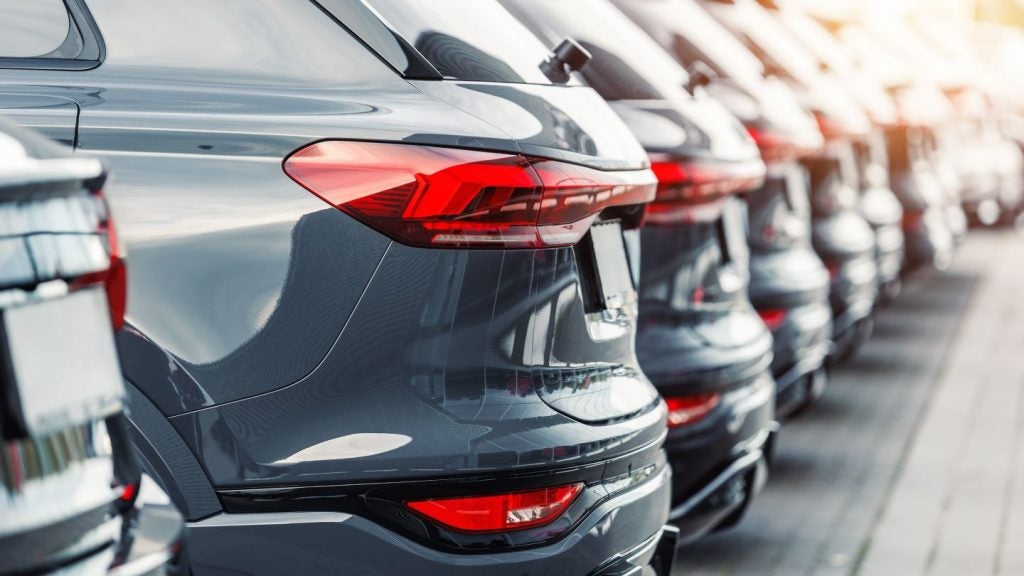In today’s fast-paced world, satellite
technology can play a crucial role.
Forward-thinking organisations are
discovering that in today’s 24/7 hi-tech world, satellite technology has a crucial role to play in cutting
costs, boosting legislative compliance and improving business
efficiency and ultimately productivity.
As a result, telematics is starting to
revolutionise the way in which companies run their vehicles and
employees drive them.
Long forgotten is, it seems, the old fashioned
prejudice of ‘Big Brother’. Instead the ‘spy
in the cab’ has become established as a must-have in the armoury of
many fleet decision-makers, as they utilise the ‘track and trace’
systems to improve fuel economy, boost productivity, limit at-work
driving risk exposure and reduce their organisation’s
transport carbon footprint through effective journey and mileage
management.
Industry data suggests that the benefits
include:
• Fuel savings of up to 20 percent;
How well do you really know your competitors?
Access the most comprehensive Company Profiles on the market, powered by GlobalData. Save hours of research. Gain competitive edge.

Thank you!
Your download email will arrive shortly
Not ready to buy yet? Download a free sample
We are confident about the unique quality of our Company Profiles. However, we want you to make the most beneficial decision for your business, so we offer a free sample that you can download by submitting the below form
By GlobalData• A 15 percent saving on overtime claims due to
improved driver records which also aids compliance with analysis of
working hours;
• Productivity increases of up to 15 percent due to
improved journey scheduling and drivers travelling directly to
their destination first time every time;
• Insurance premium savings of up to 30 percent
with drivers involved in fewer crashes as a consequence of knowing
their journeys are being recorded;
• The compilation of a thorough driver and vehicle
audit in accordance with health and safety related at-work driving
legislation;
• Vehicle recovery in the event of theft; and
• Reduced operating costs with vehicles serviced on
schedule.
A further benefit is improved customer relations as
accurate response times and delivery and call scheduling can be
achieved with the office in direct contact with the vehicle.
Indeed, Andy Walters, managing director of vehicle
telematics provider Quartix calculates that a fleet with 100
vehicles could save £2,000 per year per vehicle by using such
systems.
There are a myriad of telematics systems on the
market. However, in simple terms a ‘black box’ fitted to a vehicle
relays a raft of data on its use and performance via satellite.
That information is then delivered via the internet to a PC where
it can be viewed and management decisions implemented.
Following the recent launch of a pay-as-you-go
telematics system, Quartix is anticipating adding 500 to 700
customers this year, taking its client base between 2,500 and
2,700, with vehicle installations rising from 20,000 to 28,000.
Walters says: “Pay-as-you-go has taken hold quickly
and is now responsible for 40 percent of our business. We are
experiencing more growth from larger corporates [over 150 vehicles]
and public sector fleets. The SMEs are finding business tough and
perhaps don’t have the time available to think about the role of
new technology in their transport operations.
“But larger companies that want to take, say, 10
percent of the cost out of their transport operations are using
telematics as part of that process.”
Meanwhile, Minorplanet Systems, which has installed
around 60,000 units in the UK, claims 160 percent year-on-year
growth in demand for its telematics systems, but agrees that the
SME sector is suffering.
Head of marketing Christian Payne says: “Telematics
makes companies lean by taking cost out. Some of our clients are
reporting a return on investment within just three months, even
over three and four-year contracts.”
Telematics provider Cybit has equipped 1,500 fleets
running more than 40,000 vehicles in the UK with its Fleetstar
service and recently signed a deal to fit its system to Kwik-Fit
Mobile’s 220-strong fleet.
John Wisdom, sales and marketing director, says:
“Telematics is increasingly seen as a valuable cost-saving measure,
and vital in increasing both productivity and visibility for a
business.”
However, he says that demand is typically
increasing from businesses operating more than 50 vehicles, with
smaller organisations seeing telematics as a cost rather than an
investment in aiding cost-cutting.
Northgate Vehicle Hire, Britain’s largest vehicle
rental company, has also reported a significant increase in demand
for its Vehicle Monitoring telematics system as a result of the
recession.
Managing director Phil Moorhouse observes: “We have
seen an explosion in corporate demand as businesses battle to cut
fleet operating costs. A free ongoing offer to companies to trial
our Vehicle Monitoring technology for three months when they opt to
rent a vehicle through our flexible NORFLEX scheme has so far led
to almost 900 orders for the technology.”
Currently, telematics system have largely been
utilised by commercial vehicle operators, although demand for
fitment to company cars is slowly increasing.
Payne notes: “Telematics is particularly useful for
sales people and is a useful tool when drivers have to separate
business and private mileage in making expense claims.”
Contract hire provider ALD Automotive has been at
the forefront of fitting telemetry systems to company cars since
the launch of its ProFleet2 system more than five years ago.
Currently almost 20,000 of its fleet of 50,000 vehicles are
equipped with the technology.
Marketing director David Yates says: “The data
available enables companies to use accurate information to compile
a detailed picture of their overall fleet operation that enables
journey planners to improve operating schedules.
“This not only helps them meet key performance
indicators laid down by customers, but also enables operating
efficiencies to improve with related financial savings.
“Improved efficiencies particularly relate to
driving down travel time through better mileage management, which
not only reduces fuel costs and vehicle wear and tear, but also
cuts fleets’ carbon footprint.”






